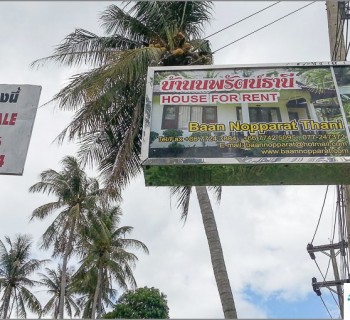We haven't published guest posts on our blog for a long time. Yes, sometimes we do it. The last one was from my mom about her independent travel to Thailand. Today I bring to your attention an article from one of our readers, Elena Rezanova, who checked on her own experience how you can live a whole year in Europe without a residence permit, and who decided to share general information on this topic.
I remember that morning a year ago. Our first morning in Paris where we arrived with a one way ticket. We walked along Boulevard des Capucines with a croissant in one hand, a paper cup of coffee in the other, we walked because we could not sit in a cafe. The wind blew out of our heads the remnants of project deadlines, meetings, presentations. And the remnants of the Moscow air that we breathed yesterday.
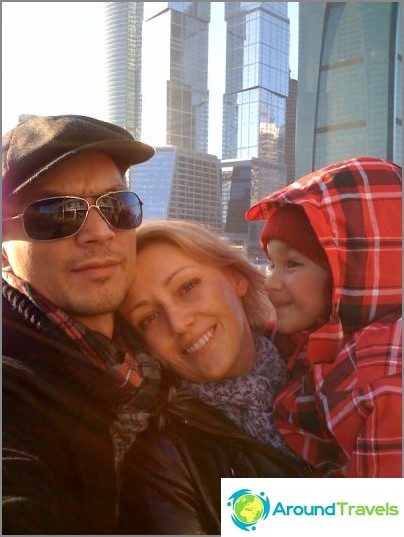
Moscow on the eve of departure
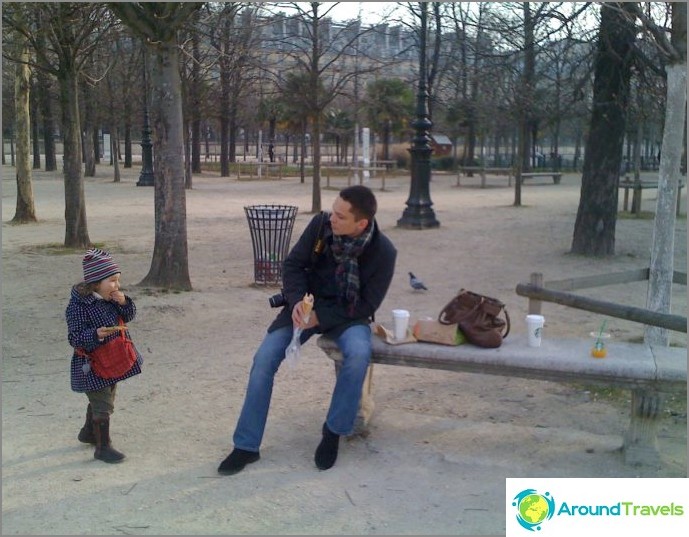
breakfast in the Tuileries garden
Stop. You are not reading this to warm yourself with our memories. Surely you want to find out how you can go to Europe, spend a year there with an adequate budget, and at the same time not die the death of the brave in the paperwork. Maybe? Yes.
Important! We are not talking here about immigration to Europe, but about the opportunity to spend six months or a year there. And then we will see.
For a year to Europe without a suitcase of money and residence permit
Based on our experience, I offer you two options:
- Tourist
To come on a tourist visa, to save money, settle in the provinces, leave Schengen (this is necessary) to the budgetary countries of Europe (Serbia, Croatia, Slovenia, etc.). All this can be easily combined with remote work / study on the Internet..
- Student
Come on a student visa, learn a language or something else, live in the city, travel only in your free time. It takes more time to prepare documents, it is more difficult to obtain a visa, and less flexibility in movement. But then you have a year without the need to go somewhere.
Now more about visas:
The first and easiest option (my daughter and I did this): get a tourist visa, Schengen annual multivisa 90 days. This means that every six months you have the right to stay in Schengen for 90 days, and you need to spend the remaining 90 days outside the Schengen area..
Pros: the procedure for obtaining a tourist visa is simple, and even the absence of a job certificate does not bother everyone. For example, the French take a certificate from the bank with a bang, and this is enough to confirm the finances. Another plus is that the availability of funds in the bank is required much less than for a long-term visa - from 500 euros.
Cons - you have to plan exits and entrances, but if you wanted to travel, and not just sit in one country, then this is quite convenient. This is what we originally intended. And in addition to Schengen, they visited Croatia, the Seychelles, and Mauritius.
The second option is a long-term visa. It was received by my husband, who was on his way to Paris to study to be a chef. The exercise is time consuming and nerve-wracking, but doable. Please note that for each adult you must show at least € 17,000 on your account. This is France. Other countries may have other requests.
Pros: The most obvious plus is that you can be in the country where you want all year round. The second plus is that the student visa can be extended on the spot.
Cons: the package of documents is obscenely impressive. It is best to arrange all this while you still have work. This will prove that you are a reliable companion..
Another disadvantage: if you are applying for a visa for training, and training is needed only nominally, for a visa, (for example, a foreign language), you still have to study. If you stop attending classes, the educational institution must report where needed, and your visa will be canceled..
And one more minus: at the time of obtaining a visa, and this must be started three months before, you will need to show the contract for housing, and in Europe you will not be spoiled with this. Accordingly, if you want to change an apartment, pay a fine to the owner - at least a month of rent.
We wrote in detail about visa subtleties in our blog, they cannot be placed in one article, but I outlined the general strategy.

Roma cooks in Le Cordon Bleu class
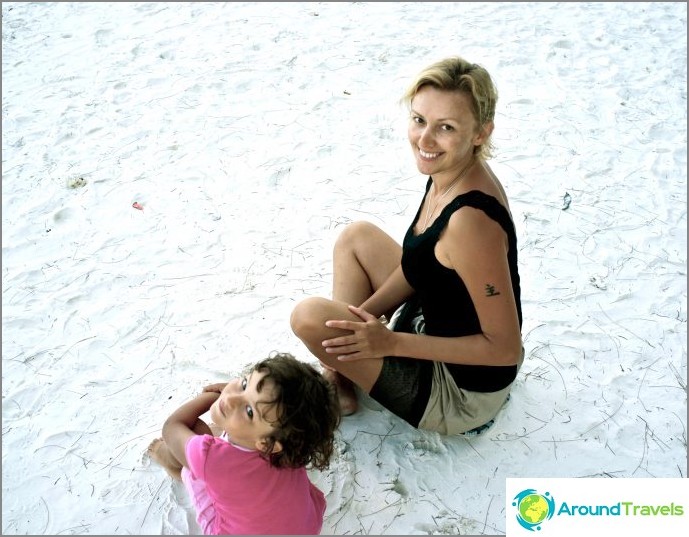
Seychelles

Travel to Brittany, September
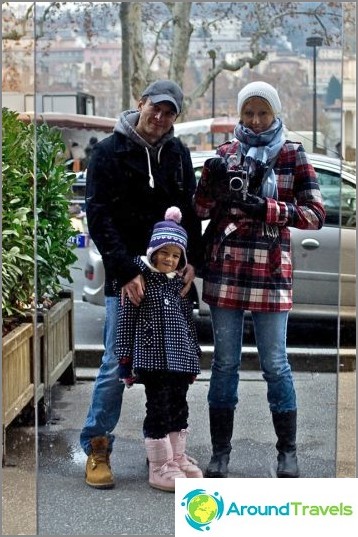
we are in Lyon
About money
Minimum budget formula = housing + food + transportation. Plus study if you are going to study. In each of the categories, you can choose a lot of options - from the most budgetary to the luxury. Depends on requests.
Housing. Our most affordable suite was to live in a studio in the center of Paris for 1550 euros / month. Then we moved to the 15th arrondissement in a kopeck piece for 1250, then left for Savoy, in the Alps, and there you can already find a studio from 400. If you live in any capital, put at least 1000 euros on housing. This is the very minimum.
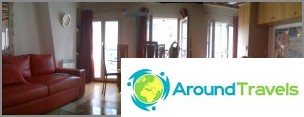
Our first Parisian studio in the center (1550 / month)
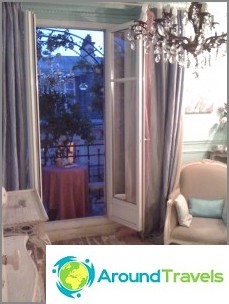
our apartment in the 15th arrondissement (1250 / month)
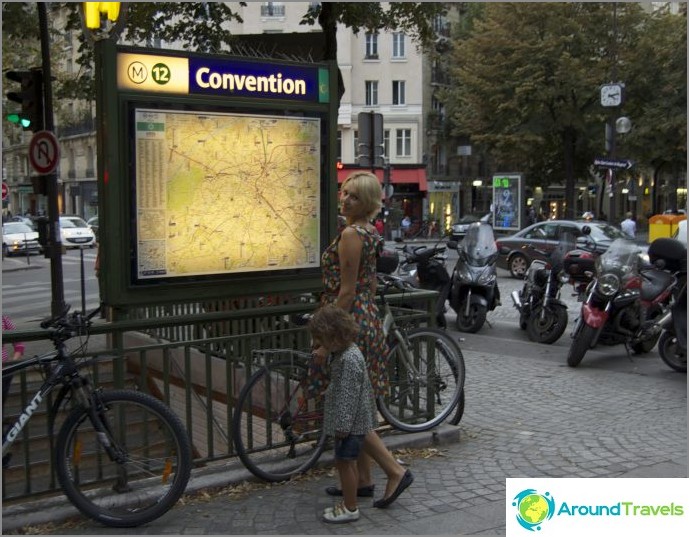
15th arrondissement - a quiet non-tourist place
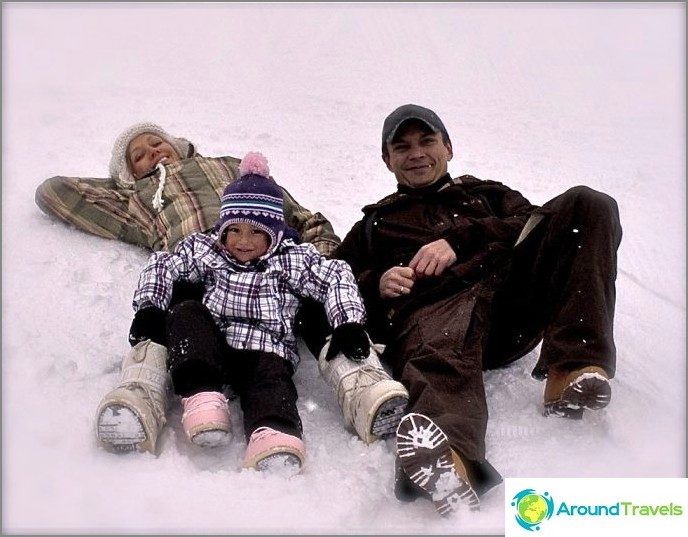
Alps
Food - hypermarkets and markets at your service. If you cook at home, the budget for two adults per month is about 300 euros. Of course it depends on your preference.
Going to restaurants is a separate expense item. I think until you get rid of the holiday symptom, you will go there often. When You Feel Local, Costs Will Creep Down.
Transport. You don't need to rent a car in Paris. There is a metro and a convenient bus system. The pass for everything costs 60 euros. In the provinces, on the contrary, you cannot do without a car. From 700 per month.
Now attention, a trap. If you are now NOT living on a limited budget, then get ready - it will not be easy to get used to the budget life. And this will happen every time: in a restaurant, a store, on a trip. You will choose hotels, food, clothes that you are used to. There are two ways out - either budget with a margin, or tightly control yourself in your daily expenses. You can train now.
Preparation: we have been preparing for nine months. The employer was warned six months earlier. Probably, it can be done faster, but if you leave with your family, then everything must be clearly planned.
Of course, the most intense were the last three months - to pack everything and transport it to the warehouse, sell the car, go to the visa center, find a decent room in Moscow for the eldest son, complete some treatment, prepare the parents, etc. Fortunately, the question of an apartment in Moscow did not arise with us, because we lived in a rented one. Dogs and hamsters did not start.
So, a year in good old Europe. If this was your day-to-day dream, it may well become an objective reality. Proven on our own experience.
Well, for a croissant?
Elena Rezanova (www.life-is-now.org).
